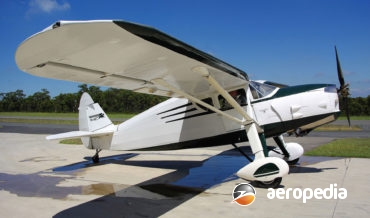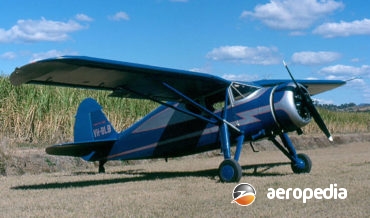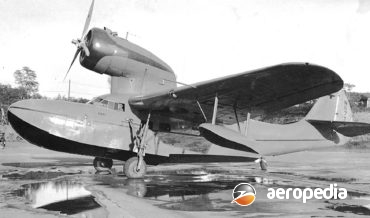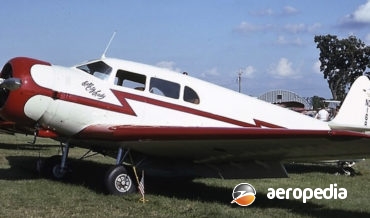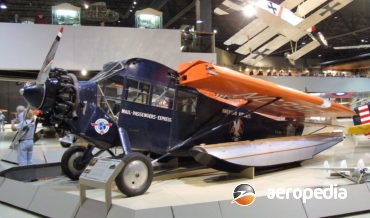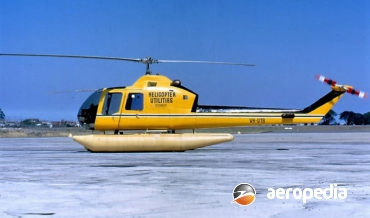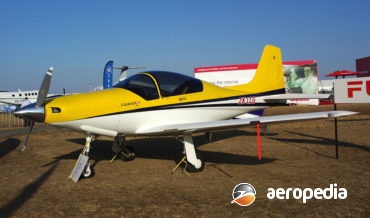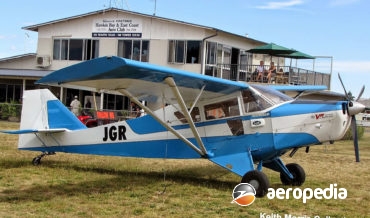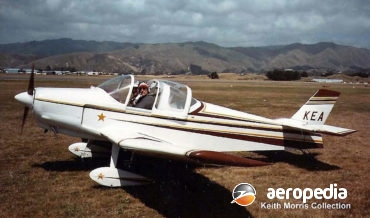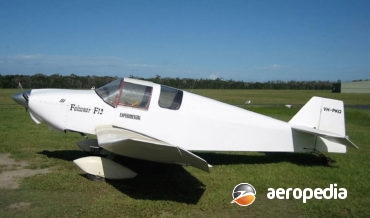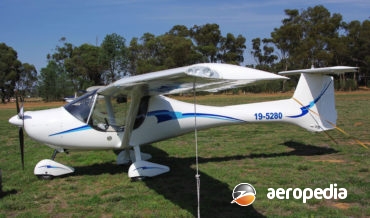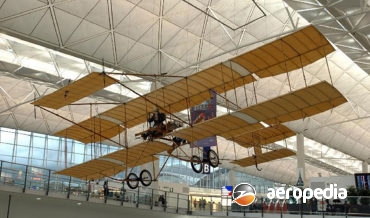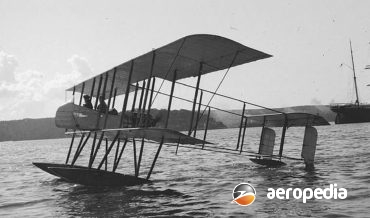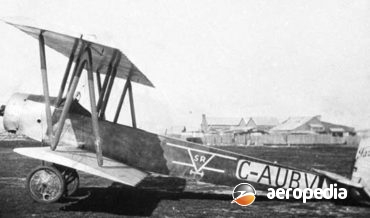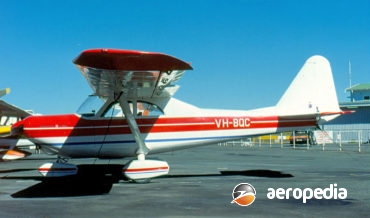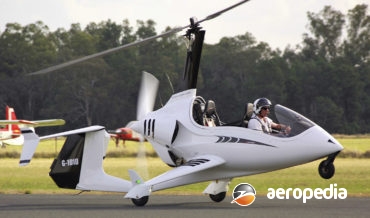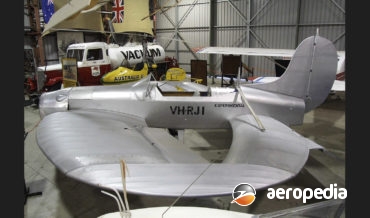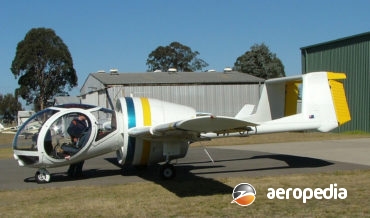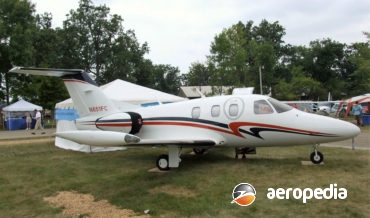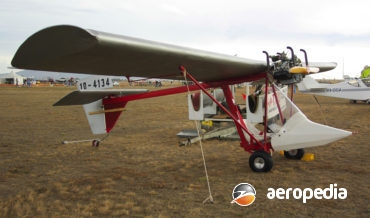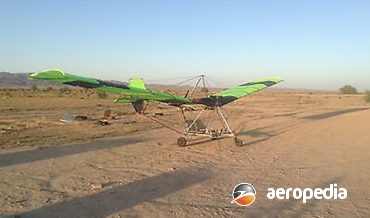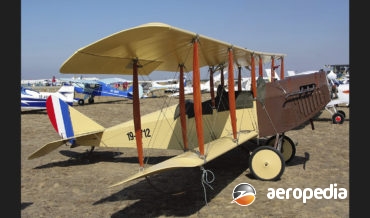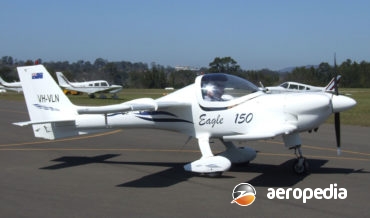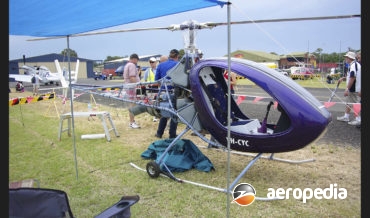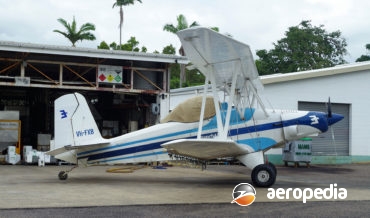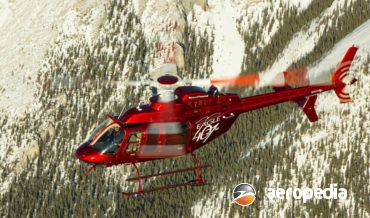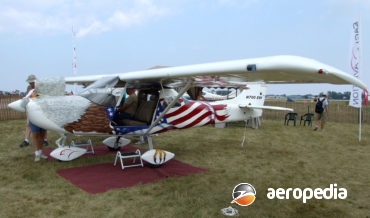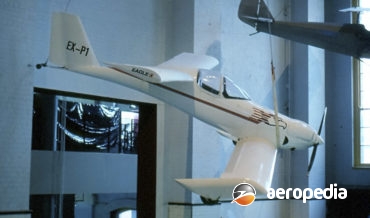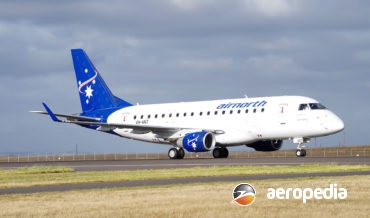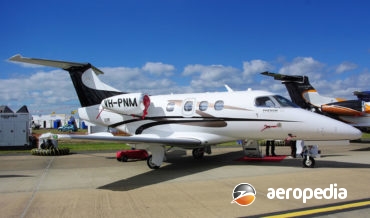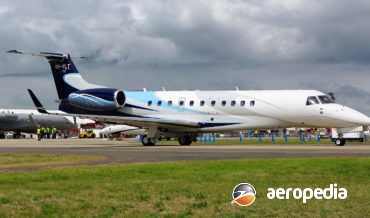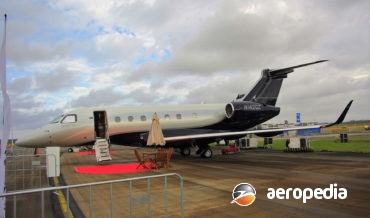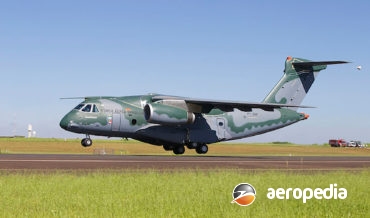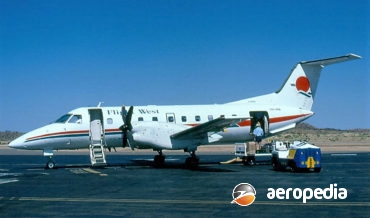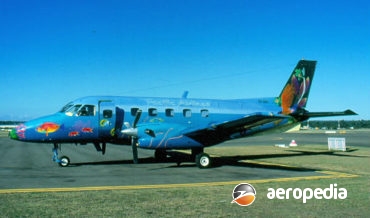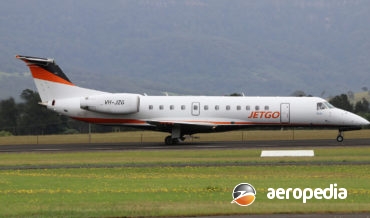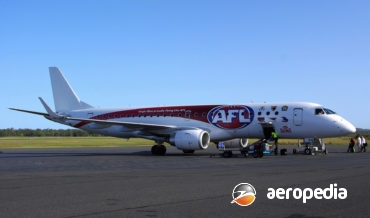David C. Eyre
As noted with the Fairchild 24W, the Model 24 series of three / four seat cabin monoplanes was introduced to the American market in 1931 by Fairchild Airplane & Engine Corp of Hagerstown, Maryland and became popular over the years, with some 17 different models being produced
David C. Eyre
- May 8, 2019
The Fairchild 24 series of aircraft was introduced in 1931 The prototype, a two-seater, known as the KR Fairchild 24, had been flown early that year, and the first production model, the F24-C8 received its type approval in June 1932
David C. Eyre
- May 8, 2019
The Fairchild 91 was a single-engined amphibian accommodating a crew of two and eight passengers in two cabins built from 1936 by the Fairchild Engine & Airplane Corp of Hagerstown, Maryland
David C. Eyre
- May 8, 2019
The Model 45 produced by the Fairchild Corporation was known, when first introduced, as The Sedan of the Air and was aimed at meeting a market for a high-speed transport with good capacity, comfort and convenience normally associated with an expensive automobile
David C. Eyre
- May 8, 2019
In the 1920s Sherman Fairchild was involved in the business of aerial photography and survey work, and found the aircraft available at the time not meeting his requirements
David C. Eyre
- May 8, 2019
The FH-1100 was the first American, light, turbine powered helicopter to be offered on the commercial market
David C. Eyre
- May 8, 2019
The Furio is a two-seat light aircraft designed and developed by Giovani and Lapo Nustrini, Lapo Ancillotti, and Kevin Grant in Auckland, NZ, design of the aircraft commencing in about 2004, construction of the prototype beginning in early 2006
David C. Eyre
- May 8, 2019
The Maranda is one of a series of homebuilt designs produced by Falconar Avia Ltd of Edmonton, Alberta, the company’s designs including modern versions of the Mignet Flying Flee, variants developed from and similar to the Jodel D-11 series, and a scale P-51 Mustang
David C. Eyre
- May 8, 2019
The F-11, known as the ‘sporty’, was designed by Christopher Falconar in Canada for amateur builders and is built by Falconar Avia at Edmonton in Alberta and supplied in kit form or as plans
David C. Eyre
- May 8, 2019
The F-12 series was developed from the F-11 series which in turn was developed from the Jodel D-11The F-12 had an enlarged cockpit, simplified fittings and aerodynamic improvements which improve the aircraft’s stall characteristics
David C. Eyre
- May 8, 2019
The Allegro is one of a series of ultra-light aircraft built at Pisek in the Czech Republic by Fantasy Air Ltd
David C. Eyre
- May 8, 2019
The Farman III, which has also been referred to as the Henri Farman 1909 or 1910 Biplane in order to distinguish it from aircraft built by his brother Maurice, was one of a series of aircraft designed and developed by Henri Farman in France from 1909, the design being copied
David C. Eyre
- May 8, 2019
A Farman Shorthorn was imported in 1914 by well known Sydney businessman, Lebbeus Hordern and part of the Anthony Horderns empire which operated the large Anthony Horderns store in the city of Sydney
David C. Eyre
- May 8, 2019
The Farman David was a light sporting biplane introduced to the aviation world via the 1919 Paris Salon
David C. Eyre
- May 8, 2019
The PAC 750 XLA is a development of the XL series for agricultural work, the initials XLA standing for Xtreme lift Advantage
David C. Eyre
- May 8, 2019
The Fawcett 120 was a high-wing, all-metal monoplane designed by Luigi Pellarini in 1953 and built by Fawcett Aviation Pty Ltd of Bankstown, NSW
David C. Eyre
- May 8, 2019
The ArrowCopter is a two-seat high performance gyrocopter produced in Austria to United Kingdom construction standard Section T CAP 643 which permits its construction up to a MTOW of 600 kg (1,322 lb), and in the ultralight class in Germany and other countries, up to a max of 450 kg
David C. Eyre
- May 8, 2019
The Circle is a radical design built in Sydney by Ronald J Feast Mr Feast spent many years designing and building model aircraft and in recent years has been working on models of a circular-wing aircraft
David C. Eyre
- May 8, 2019
Gerhard Fieseler was born near Cologne, Germany in 1886 [he died in 1987] and served as a fighter pilot during World War I, later becoming an aerobatic pilot In 1930 he purchased Segel Flugzeugbau, a glider manufacturer, and commenced to build and design further aircraft, including the very successful Fi
David C. Eyre
- May 8, 2019
Designed by John Edgley in 1974, and built by Edgley Aircraft Ltd. in the United Kingdom, the Optica was a three-seat light touring aircraft, construction of the prototype beginning in 1976 after extensive work in a wind tunnel.
David C. Eyre
- May 8, 2019
The Eclipse 500 was one of the first of what has become known as the Very Light Jet (VLA) and incorporates technologically advanced systems which include electronic circuit breakers, enhanced avionics functionality, dual-channel FADEC and auto-throttle.
David C. Eyre
- May 8, 2019
The Eastwood Tyro Mk II is a three-axis control rugged ultra-light aircraft designed and built by Geoffrey Eastwood for operations under the Australian ANO 95-10 regulations.
David C. Eyre
- May 8, 2019
In the United States in 1981 the Eastern Ultralights company commenced designing and building ultralight aircraft for the world market, the aircraft being designed by Robert Able and produced in some numbers for the amateur construction market.
David C. Eyre
- May 8, 2019
The Jenny is a two-thirds scale replica of the Curtiss JN-4D Jenny training aircraft which in its ultralight form can be used an ultralight trainer as well as a sporting aircraft.
David C. Eyre
- May 8, 2019
The Eagle X was announced in 1986 by Composite Industries Ltd, the WA group which was instrumental in getting the concept into development.
David C. Eyre
- May 8, 2019
The Helicycle was designed as a light single-seat sporting helicopter by Eagle Research and Development of Caldwell, Idaho, and has received much development since it was designed by B J Schramm in the 1960s.
David C. Eyre
- May 8, 2019
Built by Eagle Aircraft in the United States, and designed by Dean Wilson in the 1970s, the prototype of the DW-1 agricultural biplane was flown for the first time at Boise in Idaho in 1977.
David C. Eyre
- May 8, 2019
The Eagle 407HP is a development of the Bell 407 series of helicopters aimed at a market for a version of the 407 with more power.
David C. Eyre
- May 8, 2019
The prototype of the EA-100 was flown in 2007 and was fitted with a 75-kw (100-hp) Rotax engine but, following the placement of the type in production a number of engines became available to meet customer requirements, these including the Subaru 115FL, Rotax 912 ULS, Rotax 914 turbo and the
David C. Eyre
- May 8, 2019
Designed and developed by Composite Industries Ltd in Western Australia, the Eagle EX-P1 is considered to be the first designed and built all-composite aircraft completed in Australia.
David C. Eyre
- May 8, 2019
The Models 170, 175, 190 and 195 are members of a family of turbofan-powered passenger aircraft produced by Embraer in Brazil and which were developed following the success of the EMB-145 series, with more than 900 examples of the latter delivered.
David C. Eyre
- May 8, 2019
The Phenom 100 is one of a range of executive turbofan powered aircraft built by the Brazilian company Embraer.
David C. Eyre
- May 8, 2019
The Legacy 600 is one of a series of business and executive aircraft designed, developed and constructed in Brazil by Embraer, being a development of the ERJ 135 family of commercial airliners, but being fitted with the Mark I cockpit installed in the EMB 145 series.
David C. Eyre
- May 8, 2019
Described as the only mid-size business transport to feature FBW (fly-by-wire) technology, the Legacy 500 series entered service in the second half of 2014.
David C. Eyre
- May 8, 2019
In April 2007 Embraer announced it was developing a medium-size airlifter with the designation C-390 incorporating features from the Embraer E-jets and with a rear loading ramp.
David C. Eyre
- May 8, 2019
Originally known as the EMB-145, the ERJ-145 is a new generation regional airliners designed to take advantage of the latest technology in turbofan engines, providing jet speeds between regional centres at almost turboprop costs.
David C. Eyre
- May 8, 2019
The Brasilia was designed by Embraer to follow on and complement the success of the Bandeirante on the world’s commuter airliner market, and to provide greater capacity.
David C. Eyre
- May 8, 2019
Designed and developed by Embraer (Empres a Brasileirs da Aeronautica SA), which is 51-percent owned by the Brazilan Government, the Bandeirante series of aircraft was designed initially to meet the needs of the FAB (Brazilian Air Force) for a light transport.
David C. Eyre
- May 8, 2019
The ERJ-135 program was launched on 26 September 1997 and the prototype made its first flight from the manufacturers based at Sao Jose do Campos, Brazil, on 4 July 1998, the company at that time holding orders for 73 aircraft plus options on a further 122. It (PT-ZJA) made
David C. Eyre
- May 8, 2019
Along with the 170, 175, and 195, the Model 190 was one of a new range of airliners produced in Brazil for the World’s markets.
David C. Eyre
- May 8, 2019
Recent Comments
Archives
Categories
- No categories
Categories
- No categories
Latest Posts
Newsletter

